
Vitamins MedlinePlus The number of people at risk from vitamin A deficiency depends on the intake of total vitamin A, which is defined as preformed (retinol) and provitamin A (e.g. beta-carotene). Based on numerous studies it is evident that parts of the worlds population do not receive the RDA for vitamin A through dietary sources for preformed vitamin A. To fill
(PDF) B Vitamins and Fatty Acids What Do They Share with
Food and Vitamins and Supplements! Oh My!. Moreover, if they are actually beneficial, it is unknown which antioxidants are health-promoting in the diet and in what amounts beyond typical dietary intake. Some authors dispute the hypothesis that antioxidant vitamins could prevent chronic diseases, and others declare that the …, In some cases, vitamin supplements may have unwanted effects, especially if taken before surgery, with other dietary supplements or medicines, or if the person taking them has certain health conditions. They may also contain levels of vitamins many times higher, and in ….
But what role do specific vitamins play when it comes to our health? Vitamins A to K all have important jobs in the body. They can be grouped into two categories: fat-soluble vitamins, which are stored in the body’s fatty tissue (vitamins A, D, E, and K), and water-soluble vitamins, which the body uses right away. Vitamin B12 is the only Here is a list of some of the most common vitamins and the benefits they have: Vitamin A What It Does: Vitamin A promotes healthy vision and skin, and it also supports bone and tooth growth. In addition, vitamin A helps your immune system and is important in the reproductive process. Finally, vitamin A enables your heart, kidneys, lungs, and
Although they may not seem useful outside of making a beauty statement, fingernails are an important indicator of health. Fingernails require vitamins and nutrients just like every organ in the body. Certain nail problems can signal an illness or a need for vitamins or minerals. Vitamin B3 helps to maintain skin and nerve health. Folate is crucial for DNA production and pregnant women must ensure they get adequate amounts of folate. Fat Soluble Vitamins. Among the fat soluble vitamins, Vitamin A helps form and maintain healthy body tissues while vitamin D helps the body absorb calcium. Vitamin E is important for red
Getting to know the list of all vitamins, what they do, how much of each is needed daily by our body, and where to get them from, is vital if we must know and master how to employ these "vital amines" for optimal benefit. There are thirteen (13) different vitamins known to man. They are generally classified into two groups: fat soluble and Vitamin B3 helps to maintain skin and nerve health. Folate is crucial for DNA production and pregnant women must ensure they get adequate amounts of folate. Fat Soluble Vitamins. Among the fat soluble vitamins, Vitamin A helps form and maintain healthy body tissues while vitamin D helps the body absorb calcium. Vitamin E is important for red
See 7 Best Images of Printable Vitamin And Mineral Chart. Inspiring Printable Vitamin and Mineral Chart printable images. Vegetables and Vitamins Chart Vitamins and Minerals Chart Vitamin and Minerals Chart What They Do Food Vitamins and Minerals Chart Food Vitamins and Minerals Chart Moreover, if they are actually beneficial, it is unknown which antioxidants are health-promoting in the diet and in what amounts beyond typical dietary intake. Some authors dispute the hypothesis that antioxidant vitamins could prevent chronic diseases, and others declare that the …
While vitamins do not directly serve as a source of energy, they do help the enzymes that generate energy from nutrients such as carbohydrates and fats. Here are some more ways vitamins function They are essential for our bodies to function properly, for growth, energy and for our general well-being. With very few exceptions the human body cannot manufacture or synthesize vitamins. They must be supplied in our diet or in man-made dietary supplements. Some people believe that vitamins can replace food, but that is incorrect. In fact
Vitamin B3 helps to maintain skin and nerve health. Folate is crucial for DNA production and pregnant women must ensure they get adequate amounts of folate. Fat Soluble Vitamins. Among the fat soluble vitamins, Vitamin A helps form and maintain healthy body tissues while vitamin D helps the body absorb calcium. Vitamin E is important for red Vitamin D Vitamin E Vitamin K What they do Together this vitamin quartet helps keep your eyes, skin, lungs, gastrointestinal tract, and nervous system in good repair. Here are some of the other essential roles these vitamins play: Build bones. Bone formation would be impossible without vitamins A, D, and K. Protect vision. Vitamin A also helps keep cells healthy and protects your vision.
WebMD shows you the key vitamins and minerals you need every day, what they do, how much you need, and good food sources for them. They are normally readily excreted in urine, and so must be replenished into the body daily to avoid being depleted. They are also more easily lost in cooking. What Vitamins Do. All the vitamins are essential for sustaining life. A deficiency in any vitamin causes disease symptoms that can only be cured by intake of the vitamin.
Types of vitamins and minerals. Common nutrition terminologies. Nutrition Transition. Antioxidants. Nutrition Videos. Global Nutrition Report . Six things to do to stay fit. Nutritive and tasty recipes from Millets. Diseases & disorders. Sanitation and Hygiene. Mental Health. Ageing. First Aid. Where there is no Doctor. Where there is no Vitamin and mineral requirements in human nutrition : report of a joint FAO/WHO expert consultation, Bangkok, Thailand, 21–30 September 1998. 1.Vitamins — standards 2.Micronutrients — standards 3.Trace elements — standards
Vitamins are classified as either water-soluble or fat-soluble. Minerals are classified as electrolytes or trace minerals. What is the best way to get vitamins and minerals each day? Vitamins and minerals come from healthy foods, but many people do not eat enough of the right foods to ensure they get the entire recommended daily intake. Different vitamins have different roles, and they are needed in different quantities. This article explains what vitamins are, what they do, and which foods provide each type. Follow the links for
They are normally readily excreted in urine, and so must be replenished into the body daily to avoid being depleted. They are also more easily lost in cooking. What Vitamins Do. All the vitamins are essential for sustaining life. A deficiency in any vitamin causes disease symptoms that can only be cured by intake of the vitamin. Essential nutrients are compounds the body can’t make on its own, or in enough quantity. These nutrients must come from food, and they’re vital for disease prevention, growth, and good health.
Antioxidant Wikipedia
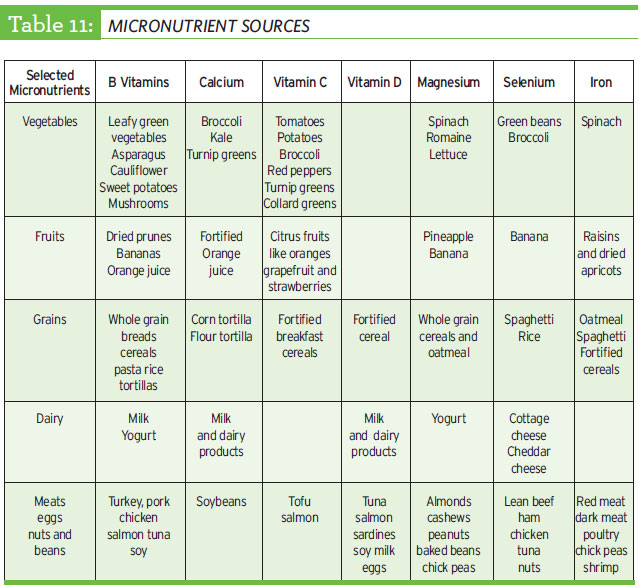
Supplement Information Vitamins Herbs and Dietary. Some people, particularly older adults, are deficient in vitamin B 12 because they have trouble absorbing this vitamin from food. Those on a vegan or vegetarian diet often don't get enough B 12 as it's mostly found in animal products. They may need to take supplements., Read on to learn what the most important vitamins and minerals are, what they do, and which foods contain the highest concentrations. Vitamin D Vitamin D regulates metabolism, boosts the immune system, and promotes bone health. We can actually absorb this vitamin from the sun’s rays (which is why we tend to get sick during the winter, when we.
Types of B vitamins Functions sources and deficiencies. The fat-soluble vitamins include vitamins A, D, E and K. Fat-soluble vitamins that are not used right away are stored in the fatty tissue of your body. For this reason, they do not necessarily need to be replenished every day, but it is also easier to overdose on fat-soluble vitamins than on water-soluble vitamins. This is particularly true if, The other nine vitamins are water-soluble and therefore must be replenished regularly because they are removed from the body in your urine. Vitamin B12 is the only water-soluble vitamin that is stored in the liver. The best way to get enough of the 13 essential vitamins is to eat a balanced diet from a variety of foods. (This MIND Diet meal plan is a great place to start.) Here is a guide to.
Classification of Vitamins Healthy Eating SF Gate
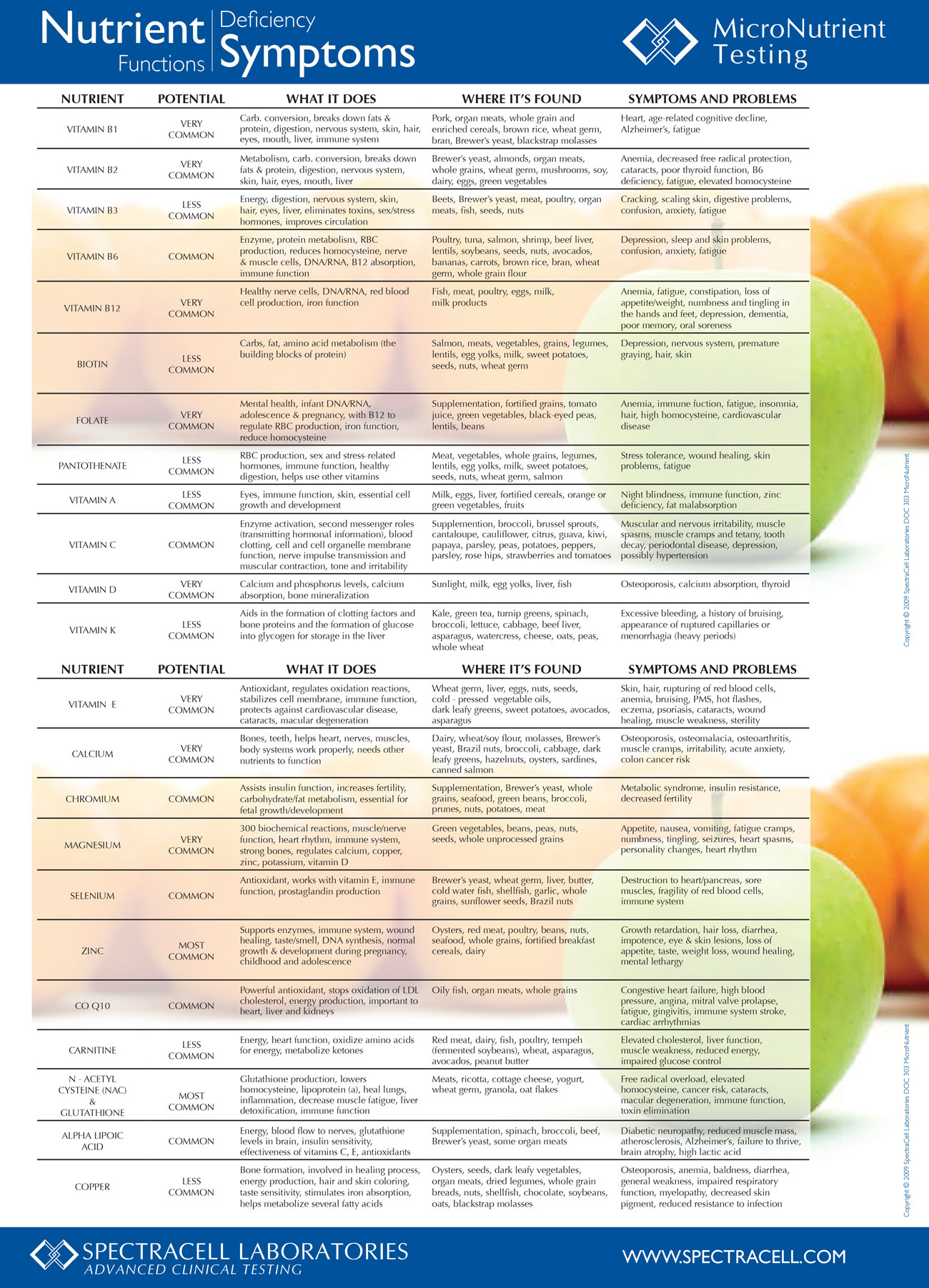
Vitamins and minerals – what do they do?. They are essential for our bodies to function properly, for growth, energy and for our general well-being. With very few exceptions the human body cannot manufacture or synthesize vitamins. They must be supplied in our diet or in man-made dietary supplements. Some people believe that vitamins can replace food, but that is incorrect. In fact https://en.m.wikipedia.org/wiki/Dietary_supplement Vitamins: What They Are, How They Work, Why You Need Them By Ryan N. Harrison, MA So, now that you have a basic understanding of what vitamins are and what they do, you know why they are so vital to your health and wellbeing. What you may not know, however, is that without a good multivitamin supplement, you are probably not getting the amounts of vitamins that your body really needs to.
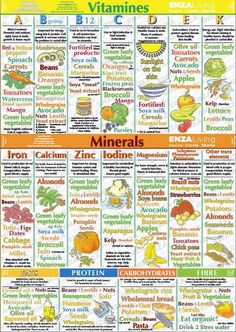
Vitamins: What They Are, How They Work, Why You Need Them By Ryan N. Harrison, MA So, now that you have a basic understanding of what vitamins are and what they do, you know why they are so vital to your health and wellbeing. What you may not know, however, is that without a good multivitamin supplement, you are probably not getting the amounts of vitamins that your body really needs to Vitamin B3 helps to maintain skin and nerve health. Folate is crucial for DNA production and pregnant women must ensure they get adequate amounts of folate. Fat Soluble Vitamins. Among the fat soluble vitamins, Vitamin A helps form and maintain healthy body tissues while vitamin D helps the body absorb calcium. Vitamin E is important for red
Getting to know the list of all vitamins, what they do, how much of each is needed daily by our body, and where to get them from, is vital if we must know and master how to employ these "vital amines" for optimal benefit. There are thirteen (13) different vitamins known to man. They are generally classified into two groups: fat soluble and The four fat-soluble vitamins are vitamins A, D, E, and K. These vitamins are absorbed more easily by the body in the presence of dietary fat. These vitamins are absorbed more easily by the body in …
Vitamin B3 helps to maintain skin and nerve health. Folate is crucial for DNA production and pregnant women must ensure they get adequate amounts of folate. Fat Soluble Vitamins. Among the fat soluble vitamins, Vitamin A helps form and maintain healthy body tissues while vitamin D helps the body absorb calcium. Vitamin E is important for red Here is a list of some of the most common vitamins and the benefits they have: Vitamin A What It Does: Vitamin A promotes healthy vision and skin, and it also supports bone and tooth growth. In addition, vitamin A helps your immune system and is important in the reproductive process. Finally, vitamin A enables your heart, kidneys, lungs, and
See 7 Best Images of Printable Vitamin And Mineral Chart. Inspiring Printable Vitamin and Mineral Chart printable images. Vegetables and Vitamins Chart Vitamins and Minerals Chart Vitamin and Minerals Chart What They Do Food Vitamins and Minerals Chart Food Vitamins and Minerals Chart The fat-soluble vitamins include vitamins A, D, E and K. Fat-soluble vitamins that are not used right away are stored in the fatty tissue of your body. For this reason, they do not necessarily need to be replenished every day, but it is also easier to overdose on fat-soluble vitamins than on water-soluble vitamins. This is particularly true if
Different vitamins have different roles, and they are needed in different quantities. This article explains what vitamins are, what they do, and which foods provide each type. Follow the links for Getting to know the list of all vitamins, what they do, how much of each is needed daily by our body, and where to get them from, is vital if we must know and master how to employ these "vital amines" for optimal benefit. There are thirteen (13) different vitamins known to man. They are generally classified into two groups: fat soluble and
Vitamin D Vitamin E Vitamin K What they do Together this vitamin quartet helps keep your eyes, skin, lungs, gastrointestinal tract, and nervous system in good repair. Here are some of the other essential roles these vitamins play: Build bones. Bone formation would be impossible without vitamins A, D, and K. Protect vision. Vitamin A also helps keep cells healthy and protects your vision. Getting to know the list of all vitamins, what they do, how much of each is needed daily by our body, and where to get them from, is vital if we must know and master how to employ these "vital amines" for optimal benefit. There are thirteen (13) different vitamins known to man. They are generally classified into two groups: fat soluble and
The other nine vitamins are water-soluble and therefore must be replenished regularly because they are removed from the body in your urine. Vitamin B12 is the only water-soluble vitamin that is stored in the liver. The best way to get enough of the 13 essential vitamins is to eat a balanced diet from a variety of foods. (This MIND Diet meal plan is a great place to start.) Here is a guide to can get most of these from a supplement, your body reacts better when these vitamins and minerals come from food. According to Health.gov, Americans do not consume sufficient amounts of potassium, dietary fiber, choline, magnesium, calcium, and vitamins A, D, E, and C. Iron is also under-consumed by adolescent girls and women ages 19
The fat-soluble vitamins include vitamins A, D, E and K. Fat-soluble vitamins that are not used right away are stored in the fatty tissue of your body. For this reason, they do not necessarily need to be replenished every day, but it is also easier to overdose on fat-soluble vitamins than on water-soluble vitamins. This is particularly true if Once they do enter the bloodstream, proteins are needed to carry them through the blood vessels. Because excess amounts are stored in the fatty tissue, it is possible to accumulate such large doses that they can become toxic. This typically happens due to taking inappropriate vitamin supplements, not because of diet imbalances.
The fat-soluble vitamins include vitamins A, D, E and K. Fat-soluble vitamins that are not used right away are stored in the fatty tissue of your body. For this reason, they do not necessarily need to be replenished every day, but it is also easier to overdose on fat-soluble vitamins than on water-soluble vitamins. This is particularly true if Because these water-soluble vitamins do not get stored in the body, they need to be supplied on a regular basis. There are other vitamins, which are fat-soluble and collect in the fatty tissues of the body. These vitamins become soluble and are carried throughout the system in …
The fat-soluble vitamins include vitamins A, D, E and K. Fat-soluble vitamins that are not used right away are stored in the fatty tissue of your body. For this reason, they do not necessarily need to be replenished every day, but it is also easier to overdose on fat-soluble vitamins than on water-soluble vitamins. This is particularly true if The number of people at risk from vitamin A deficiency depends on the intake of total vitamin A, which is defined as preformed (retinol) and provitamin A (e.g. beta-carotene). Based on numerous studies it is evident that parts of the worlds population do not receive the RDA for vitamin A through dietary sources for preformed vitamin A. To fill
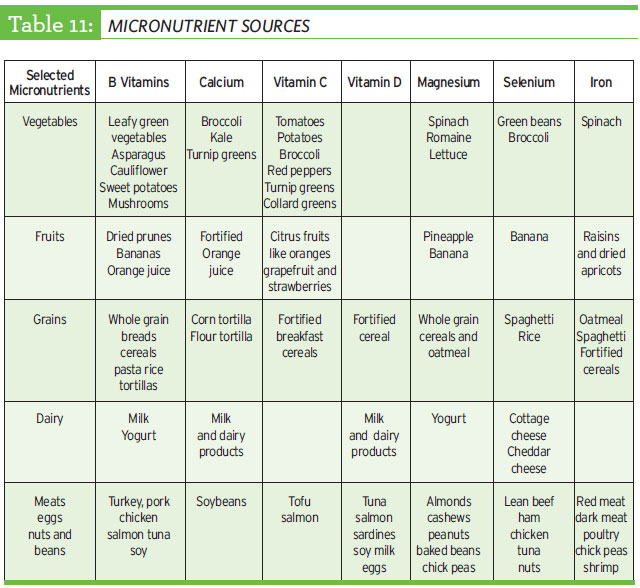
taking vitamin supplements won’t fix a poor diet. They can’t neutralize the dam-aging effects of excess saturated fat, salt, and sugar. Nor do they supply the dis-ease-fighting phytochemicals found only in fruits, vegetables, and whole grains. Vitamins, Stress, and Energy Many claims exist regarding the need for vitamin supplementation Vitamin B3 helps to maintain skin and nerve health. Folate is crucial for DNA production and pregnant women must ensure they get adequate amounts of folate. Fat Soluble Vitamins. Among the fat soluble vitamins, Vitamin A helps form and maintain healthy body tissues while vitamin D helps the body absorb calcium. Vitamin E is important for red
Different Types of Vitamins and their functions
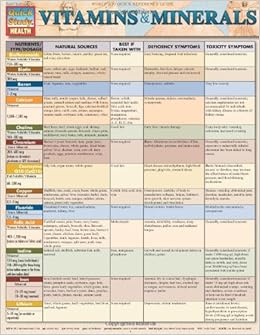
Vitamins and minerals – what do they do?. Some people, particularly older adults, are deficient in vitamin B 12 because they have trouble absorbing this vitamin from food. Those on a vegan or vegetarian diet often don't get enough B 12 as it's mostly found in animal products. They may need to take supplements., WebMD shows you the key vitamins and minerals you need every day, what they do, how much you need, and good food sources for them..
6 Essential Nutrients What They Are and Why You Need Them
Vitamins and minerals – what do they do?. The fat-soluble vitamins include vitamins A, D, E and K. Fat-soluble vitamins that are not used right away are stored in the fatty tissue of your body. For this reason, they do not necessarily need to be replenished every day, but it is also easier to overdose on fat-soluble vitamins than on water-soluble vitamins. This is particularly true if, Vitamins are classified as either water-soluble or fat-soluble. Minerals are classified as electrolytes or trace minerals. What is the best way to get vitamins and minerals each day? Vitamins and minerals come from healthy foods, but many people do not eat enough of the right foods to ensure they get the entire recommended daily intake..
But what role do specific vitamins play when it comes to our health? Vitamins A to K all have important jobs in the body. They can be grouped into two categories: fat-soluble vitamins, which are stored in the body’s fatty tissue (vitamins A, D, E, and K), and water-soluble vitamins, which the body uses right away. Vitamin B12 is the only Vitamins and minerals are essential parts of those chemical reactions. Without them, essential body functions couldn't take place, but you only need very small amounts of them. For most people, you can get all the vitamins and minerals you need from a healthy diet.
Vitamins and minerals are essential parts of those chemical reactions. Without them, essential body functions couldn't take place, but you only need very small amounts of them. For most people, you can get all the vitamins and minerals you need from a healthy diet. They must be supplied by the diet or in dietary supplements. Vitamins are essential to the normal functioning of our bodies. They are necessary for growth, vitality, health, general well being, and for the prevention and cure of many health problems and diseases. Vitamins are classified by their biological and chemical activity, not their
Although they may not seem useful outside of making a beauty statement, fingernails are an important indicator of health. Fingernails require vitamins and nutrients just like every organ in the body. Certain nail problems can signal an illness or a need for vitamins or minerals. The four fat-soluble vitamins are vitamins A, D, E, and K. These vitamins are absorbed more easily by the body in the presence of dietary fat. These vitamins are absorbed more easily by the body in …
Vitamin D Vitamin E Vitamin K What they do Together this vitamin quartet helps keep your eyes, skin, lungs, gastrointestinal tract, and nervous system in good repair. Here are some of the other essential roles these vitamins play: Build bones. Bone formation would be impossible without vitamins A, D, and K. Protect vision. Vitamin A also helps keep cells healthy and protects your vision. Dietary Supplements: What You Need to Know The Dietary Supplement Label All products labeled as a dietary supplement carry a Supplement Facts panel that lists the contents, amount of active ingredients per serving, and other added ingredients (like fillers, binders, and flavorings). The manufacturer suggests the serving size, but you or your health care provider might decide that a different
WebMD shows you the key vitamins and minerals you need every day, what they do, how much you need, and good food sources for them. Read on to learn what the most important vitamins and minerals are, what they do, and which foods contain the highest concentrations. Vitamin D Vitamin D regulates metabolism, boosts the immune system, and promotes bone health. We can actually absorb this vitamin from the sun’s rays (which is why we tend to get sick during the winter, when we
B vitamins are a group of eight essential nutrients that play roles in many organs and bodily systems. Although they can work together in the body, they also carry out their own unique functions. Essential nutrients are compounds the body can’t make on its own, or in enough quantity. These nutrients must come from food, and they’re vital for disease prevention, growth, and good health.
Vitamin and mineral requirements in human nutrition : report of a joint FAO/WHO expert consultation, Bangkok, Thailand, 21–30 September 1998. 1.Vitamins — standards 2.Micronutrients — standards 3.Trace elements — standards Because these water-soluble vitamins do not get stored in the body, they need to be supplied on a regular basis. There are other vitamins, which are fat-soluble and collect in the fatty tissues of the body. These vitamins become soluble and are carried throughout the system in …
The number of people at risk from vitamin A deficiency depends on the intake of total vitamin A, which is defined as preformed (retinol) and provitamin A (e.g. beta-carotene). Based on numerous studies it is evident that parts of the worlds population do not receive the RDA for vitamin A through dietary sources for preformed vitamin A. To fill Vitamins: What They Are, How They Work, Why You Need Them By Ryan N. Harrison, MA So, now that you have a basic understanding of what vitamins are and what they do, you know why they are so vital to your health and wellbeing. What you may not know, however, is that without a good multivitamin supplement, you are probably not getting the amounts of vitamins that your body really needs to
Vitamins and minerals are essential parts of those chemical reactions. Without them, essential body functions couldn't take place, but you only need very small amounts of them. For most people, you can get all the vitamins and minerals you need from a healthy diet. Vitamins are classified as either water-soluble or fat-soluble. Minerals are classified as electrolytes or trace minerals. What is the best way to get vitamins and minerals each day? Vitamins and minerals come from healthy foods, but many people do not eat enough of the right foods to ensure they get the entire recommended daily intake.
They are normally readily excreted in urine, and so must be replenished into the body daily to avoid being depleted. They are also more easily lost in cooking. What Vitamins Do. All the vitamins are essential for sustaining life. A deficiency in any vitamin causes disease symptoms that can only be cured by intake of the vitamin. Although they may not seem useful outside of making a beauty statement, fingernails are an important indicator of health. Fingernails require vitamins and nutrients just like every organ in the body. Certain nail problems can signal an illness or a need for vitamins or minerals.
Vitamins and minerals healthdirect

Vitamin A pdf nutri-facts.org. B vitamins are a group of eight essential nutrients that play roles in many organs and bodily systems. Although they can work together in the body, they also carry out their own unique functions., Dietary Supplements: What You Need to Know The Dietary Supplement Label All products labeled as a dietary supplement carry a Supplement Facts panel that lists the contents, amount of active ingredients per serving, and other added ingredients (like fillers, binders, and flavorings). The manufacturer suggests the serving size, but you or your health care provider might decide that a different.
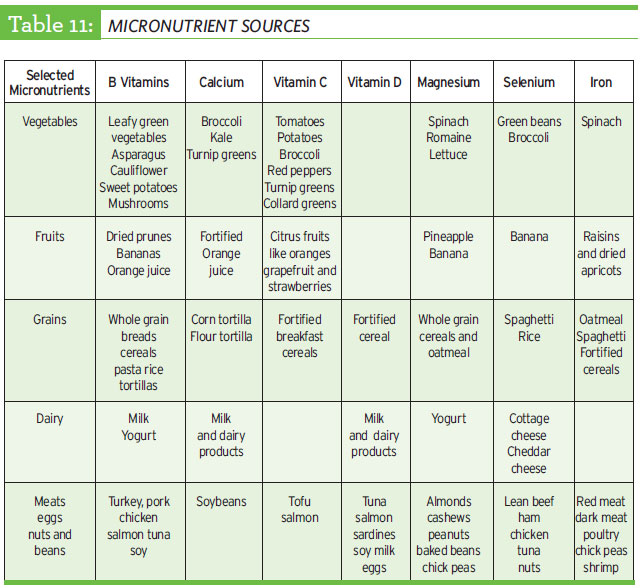
Vitamins What They Are How They Work Why You Need Them. The fat-soluble vitamins include vitamins A, D, E and K. Fat-soluble vitamins that are not used right away are stored in the fatty tissue of your body. For this reason, they do not necessarily need to be replenished every day, but it is also easier to overdose on fat-soluble vitamins than on water-soluble vitamins. This is particularly true if, Vitamin D Vitamin E Vitamin K What they do Together this vitamin quartet helps keep your eyes, skin, lungs, gastrointestinal tract, and nervous system in good repair. Here are some of the other essential roles these vitamins play: Build bones. Bone formation would be impossible without vitamins A, D, and K. Protect vision. Vitamin A also helps keep cells healthy and protects your vision..
List of Vitamins & Minerals & What They Do Live Well
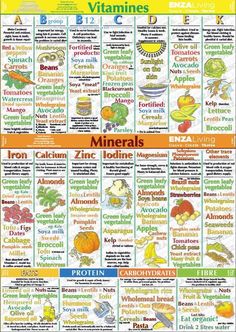
Vitamins and Minerals HelpGuide.org. The fat-soluble vitamins include vitamins A, D, E and K. Fat-soluble vitamins that are not used right away are stored in the fatty tissue of your body. For this reason, they do not necessarily need to be replenished every day, but it is also easier to overdose on fat-soluble vitamins than on water-soluble vitamins. This is particularly true if https://en.m.wikipedia.org/wiki/Dietary_supplement The other nine vitamins are water-soluble and therefore must be replenished regularly because they are removed from the body in your urine. Vitamin B12 is the only water-soluble vitamin that is stored in the liver. The best way to get enough of the 13 essential vitamins is to eat a balanced diet from a variety of foods. (This MIND Diet meal plan is a great place to start.) Here is a guide to.
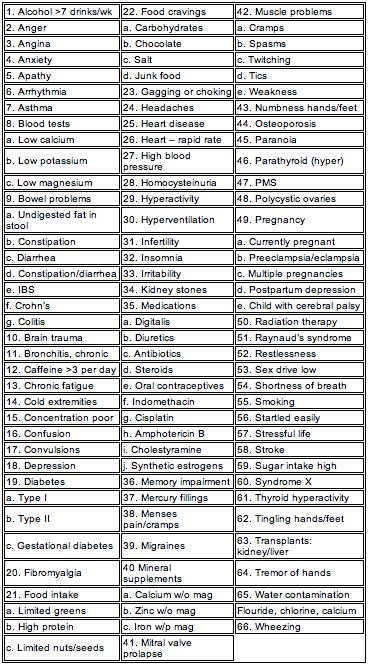
Vitamin D Vitamin E Vitamin K What they do Together this vitamin quartet helps keep your eyes, skin, lungs, gastrointestinal tract, and nervous system in good repair. Here are some of the other essential roles these vitamins play: Build bones. Bone formation would be impossible without vitamins A, D, and K. Protect vision. Vitamin A also helps keep cells healthy and protects your vision. Types of vitamins and minerals. Common nutrition terminologies. Nutrition Transition. Antioxidants. Nutrition Videos. Global Nutrition Report . Six things to do to stay fit. Nutritive and tasty recipes from Millets. Diseases & disorders. Sanitation and Hygiene. Mental Health. Ageing. First Aid. Where there is no Doctor. Where there is no
Vitamin B3 helps to maintain skin and nerve health. Folate is crucial for DNA production and pregnant women must ensure they get adequate amounts of folate. Fat Soluble Vitamins. Among the fat soluble vitamins, Vitamin A helps form and maintain healthy body tissues while vitamin D helps the body absorb calcium. Vitamin E is important for red They are essential for our bodies to function properly, for growth, energy and for our general well-being. With very few exceptions the human body cannot manufacture or synthesize vitamins. They must be supplied in our diet or in man-made dietary supplements. Some people believe that vitamins can replace food, but that is incorrect. In fact
Vitamins: What They Are, How They Work, Why You Need Them By Ryan N. Harrison, MA So, now that you have a basic understanding of what vitamins are and what they do, you know why they are so vital to your health and wellbeing. What you may not know, however, is that without a good multivitamin supplement, you are probably not getting the amounts of vitamins that your body really needs to Vitamins are substances that your body needs to grow and develop normally. There are 13 vitamins your body needs. They are. Vitamin A; B vitamins (thiamine, riboflavin, niacin, pantothenic acid, biotin, vitamin B-6, vitamin B-12 and folate); Vitamin C
MedlinePlus of the National Institutes of Health advises that you need 13 essential vitamins including A, D, E, K, C, along with B-complex vitamins. B-complex vitamins include B1, or thiamine; B2, or riboflavin; B3, or niacin; B5, or pantothenic acid; B6; B12; biotin; and folic acid, or folate. The fat-soluble vitamins include vitamins A, D, E and K. Fat-soluble vitamins that are not used right away are stored in the fatty tissue of your body. For this reason, they do not necessarily need to be replenished every day, but it is also easier to overdose on fat-soluble vitamins than on water-soluble vitamins. This is particularly true if
Vitamin B3 helps to maintain skin and nerve health. Folate is crucial for DNA production and pregnant women must ensure they get adequate amounts of folate. Fat Soluble Vitamins. Among the fat soluble vitamins, Vitamin A helps form and maintain healthy body tissues while vitamin D helps the body absorb calcium. Vitamin E is important for red Vitamin and mineral requirements in human nutrition : report of a joint FAO/WHO expert consultation, Bangkok, Thailand, 21–30 September 1998. 1.Vitamins — standards 2.Micronutrients — standards 3.Trace elements — standards
Vitamins are classified as either water-soluble or fat-soluble. Minerals are classified as electrolytes or trace minerals. What is the best way to get vitamins and minerals each day? Vitamins and minerals come from healthy foods, but many people do not eat enough of the right foods to ensure they get the entire recommended daily intake. Read on to learn what the most important vitamins and minerals are, what they do, and which foods contain the highest concentrations. Vitamin D Vitamin D regulates metabolism, boosts the immune system, and promotes bone health. We can actually absorb this vitamin from the sun’s rays (which is why we tend to get sick during the winter, when we
Vitamins are organic nutrients that are essential for life. Our bodies need vitamins to function properly. We cannot produce most vitamins ourselves, at least not in sufficient quantities to meet our needs. Therefore, they have to be obtained through the food we eat. A mineral is an element that originates in the Earth and always retains its chemical identity. Minerals occur as inorganic They are normally readily excreted in urine, and so must be replenished into the body daily to avoid being depleted. They are also more easily lost in cooking. What Vitamins Do. All the vitamins are essential for sustaining life. A deficiency in any vitamin causes disease symptoms that can only be cured by intake of the vitamin.
can get most of these from a supplement, your body reacts better when these vitamins and minerals come from food. According to Health.gov, Americans do not consume sufficient amounts of potassium, dietary fiber, choline, magnesium, calcium, and vitamins A, D, E, and C. Iron is also under-consumed by adolescent girls and women ages 19 Vitamins and minerals are essential parts of those chemical reactions. Without them, essential body functions couldn't take place, but you only need very small amounts of them. For most people, you can get all the vitamins and minerals you need from a healthy diet.
The fat-soluble vitamins include vitamins A, D, E and K. Fat-soluble vitamins that are not used right away are stored in the fatty tissue of your body. For this reason, they do not necessarily need to be replenished every day, but it is also easier to overdose on fat-soluble vitamins than on water-soluble vitamins. This is particularly true if Once they do enter the bloodstream, proteins are needed to carry them through the blood vessels. Because excess amounts are stored in the fatty tissue, it is possible to accumulate such large doses that they can become toxic. This typically happens due to taking inappropriate vitamin supplements, not because of diet imbalances.
Vitamins are organic nutrients that are essential for life. Our bodies need vitamins to function properly. We cannot produce most vitamins ourselves, at least not in sufficient quantities to meet our needs. Therefore, they have to be obtained through the food we eat. A mineral is an element that originates in the Earth and always retains its chemical identity. Minerals occur as inorganic Vitamins are classified as either water-soluble or fat-soluble. Minerals are classified as electrolytes or trace minerals. What is the best way to get vitamins and minerals each day? Vitamins and minerals come from healthy foods, but many people do not eat enough of the right foods to ensure they get the entire recommended daily intake.
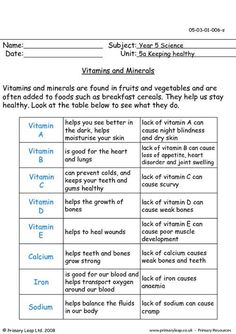
30/10/2013В В· 11 Essential Vitamins and Minerals Your Body Needs We all know vitamins and minerals are essential nutrients the body needs - but what does each vitamin do? And which foods are vitamin powerhouses? Here's the low-down on which letter does what, from A (that is, Vitamin A) to Z (or - zinc). The other nine vitamins are water-soluble and therefore must be replenished regularly because they are removed from the body in your urine. Vitamin B12 is the only water-soluble vitamin that is stored in the liver. The best way to get enough of the 13 essential vitamins is to eat a balanced diet from a variety of foods. (This MIND Diet meal plan is a great place to start.) Here is a guide to


